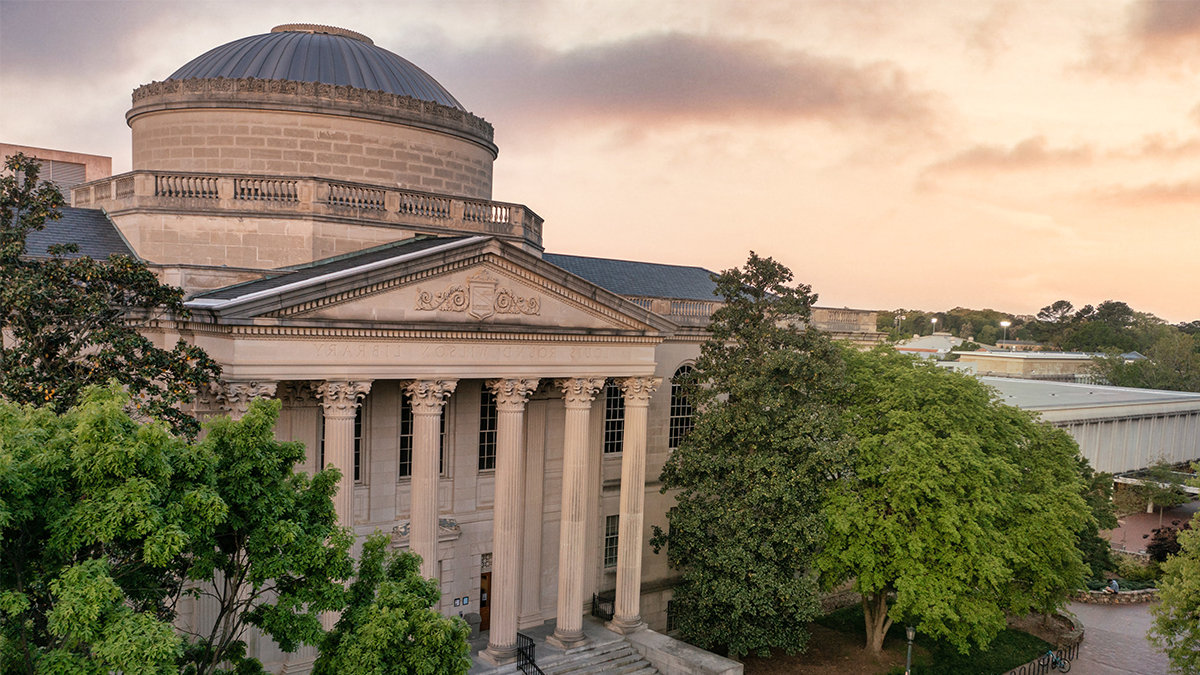亚洲研究主席评《太阳城娱乐城》
Carolina professor 摩根Pitelka discusses the historical accuracy of the Emmy-nominated series.

备受赞誉的 FX电视剧《太阳城娱乐城》 has captivated viewers since its first episodes aired this spring.
One especially keen viewer is UNC-Chapel Hill’s chair of Asian and Middle Eastern studies, 摩根Pitelka, an expert on the same pre-modern era of Japan the series explores.
故事发生在1600年, “Shogun” follows a warlord’s rise to power and his unlikely partnership with an English sailor. 虽然是一部历史小说, “Shogun” draws from the real-life shogun Tokugawa Ieyasa, 皮特尔卡书中的一个主题, “Spectacular Accumulation: Material Culture, Tokugawa Ieyasu, and Samurai Sociability.”
皮特尔卡,Bernard L. Herman Distinguished Professor, took time to discuss the series, based on James Clavell’s 1975 novel.
是什么让德川家康如此迷人?
他是一个了不起的历史人物. 在16世纪末和17世纪初, Japan is coming to the end of this period of civil war, and under his leadership a government is founded that rules Japan peacefully for 250 years. 这是一个非常显著的转变, 很明显, 有很多人参与其中, but it’s kind of unusual to be able to put so much credit in the hands of one individual. 他被尊为政府的缔造者, 他经历了一个神化的过程, so he became a deity who was worshipped for hundreds of years.
“Shogun” is historical fiction, but the Lord Toranaga character is inspired by Ieyasu. What similarities and differences do you see between the real-life and fictionalized version of him?
他对来日本的欧洲人很友好. That kind of contact with the West was a source of conflict. 我们在节目中看到了这一点. 一些日本人改信基督教. Others are interested in Europeans because of trade. 有些人对他们非常怀疑. They’re kind of xenophobic; they want to get the foreigners out of Japan. It is true that Tokugawa Ieyasu was much more engaged and interested in Europeans than many of his peers. 他使贸易和外交继续进行. 这是《太阳城娱乐城》故事的核心,” this bizarre friendship that developed between this British sailor and this warlord who’s about to become the ruler of Japan – and that’s quite accurate.
Just how accurate is the show’s portrayal of Japanese culture? 感觉真实吗??
总的来说,感觉确实很准确. These very powerful warlords have a lot of constraints. There’s Toranaga, the Ieyasu character, and then there’s Ishido. Even though both are very proud patriarchs and powerful warrior leaders, 有很多事情他们不能做. Ieyasu is constantly being told where to go and what to do, 石田想要接管, 但是他不能. He has to rely on the council, he has to get the votes, and he has to bargain with the other regions.
Another detail is that the women in the show are really, really strong. 他们有很多代理机构. They don’t rule openly, they don’t hold positions in government openly, but they can be consulted. Sometimes they’re the secret boss behind the boss. I think that’s important because sometimes representations of pre-modern history ignore the influence that women had.
Why is this specific era in Japan worth exploring?
这是一个全球化的时刻, and that’s interesting because Japan is often thought of as being an isolated country. 在余下的德川时期, Japan does have such strict border control; that’s part of how they protected themselves. 但在16世纪末17世纪初, 日本的联系更紧密, more entangled with other cultures and people from around the world than at any other moment in its pre-modern history.







